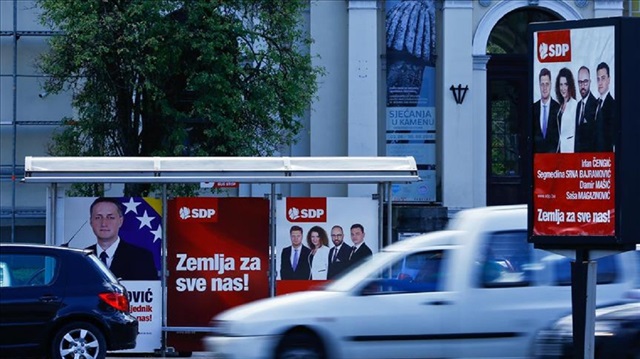
67 political parties, 34 independent candidates, 34 alliances to run in elections in the Balkan country
Bosnia and Herzegovina is braced for Sunday's elections to decide on a mind-blowing number of national and sub-national presidencies, parliaments, and assemblies in one of the most intricate political systems in the world.
Bosnia and Herzegovina has two entities, 10 cantons, and an autonomous region. The country's complex political structure, the crippling economic crisis, unemployment and memories of the war make the elections even more complicated.
Voters will pick a national parliament, three members of the national presidency, the parliaments of the country’s two entities and other bodies.
They will elect the parliamentary members of the two councils -- the Federation of Bosnia and Herzegovina (FBIH) and the Republika Srpska (RS), the two constitutional entities of the country.
The voters will also vote for parliament members of the Bosnian federation's 10 cantons.
Fifteen candidates -- 6 Bosnians, 5 Croats, 4 Serbs -- will compete for the rotating chairmanship of the three-member Presidency of Bosnia and Herzegovina.
Bosnian candidates:
Serb candidates:
Milorad Dodik (Alliance of Independent Social Democrats-SNSD), Mirjana Popovic (Serbian Progressive Party-SNS), Gojko Klickovic (First Serbian Democratic Party-Prva SDS), Mladen Ivanic (Alliance for Victory
Bosnia and Herzegovina election authority has cleared 67 political parties to participate in the elections. This is the highest figure since the 2002 elections.
The elections will also see 34 independent candidates and 34 alliances at different levels of the state functions.
In total nearly 7,500 candidates will run for 518 posts which equals an average of 14 candidates for every single post up for grabs.
According to the election authority, there are 3,352.933 registered voters in the country plus some 78,000 voters abroad.




